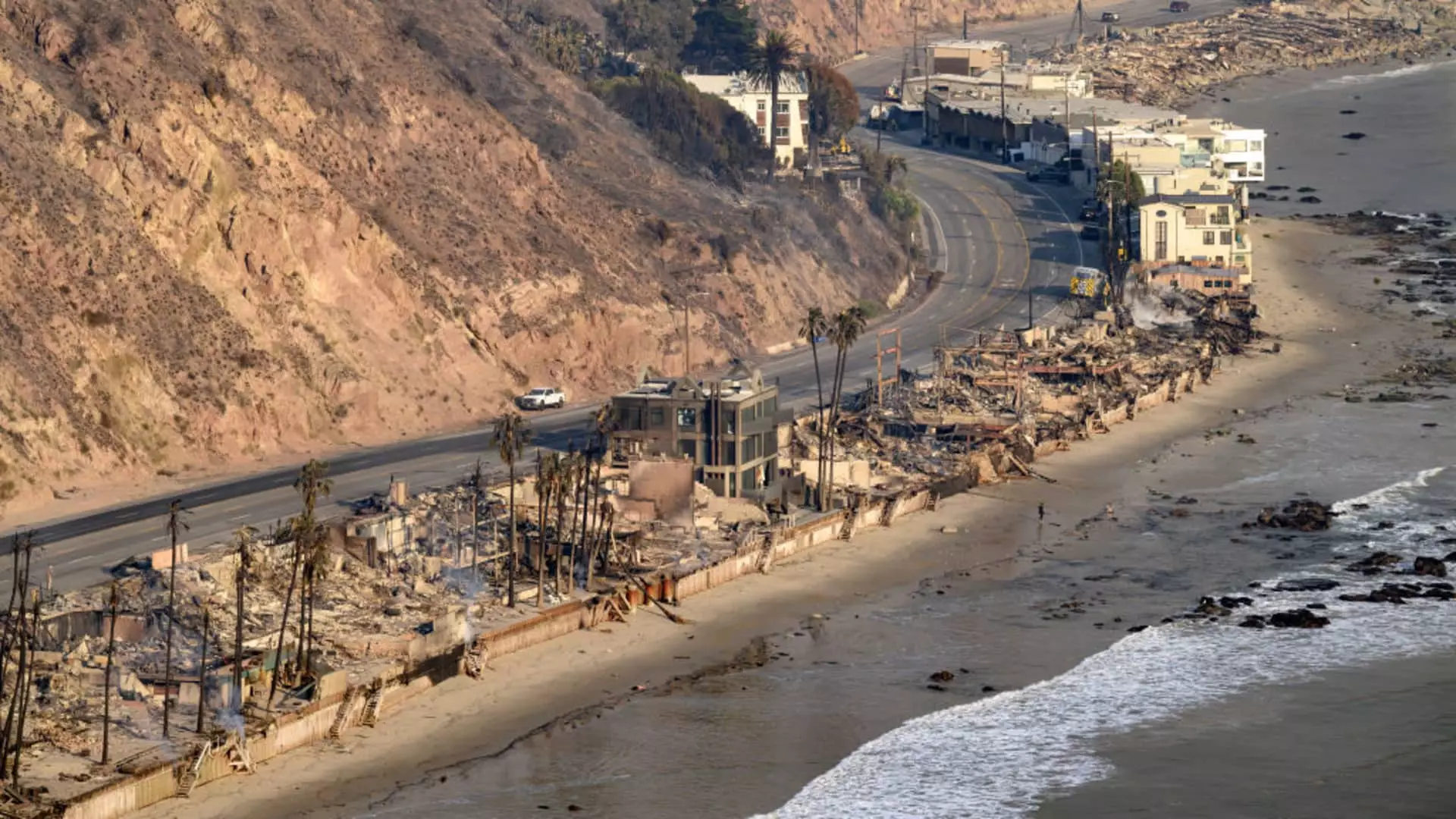Wildfires have become a recurrent crisis in California, particularly affecting the Los Angeles region, where families face dire consequences, including loss of homes and disruption to daily life. American Airlines, United Airlines, Southwest Airlines, and JetBlue Airways have implemented travel waivers to accommodate passengers whose flights are affected by this calamity. These waivers are pivotal, as they help mitigate the stress of travel amidst emergencies, allowing changes without incurring hefty fees, thus reflecting the airlines’ commitment to customer service in challenging times.
Despite the challenges presented by the wildfires—such as power outages, water shortages, and widespread evacuations—air travel operations have managed to sustain a degree of normalcy. As indicated by flight-tracking platforms, major airports, including Los Angeles International Airport (LAX) and Burbank Airport, maintained typical operations. However, it should be noted that the situation remains precarious, with parts of Los Angeles under evacuation orders, emphasizing the fragile balance between maintaining normalcy and ensuring passenger safety.
The waivers introduced by airlines allow travelers to modify their itineraries without penalty, specifically for flights to Los Angeles and surrounding areas, valid until January 20. Southwest Airlines, for instance, has made provisions for passengers to rebook within 14 days of their original flights, and even allows travelers to change their destinations to other California locales such as Palm Springs, Santa Barbara, and San Diego. These policies not only provide flexibility but also demonstrate the airlines’ responsiveness to the unique challenges posed by natural disasters.
However, it is crucial for travelers to understand that while airlines are doing their utmost to accommodate passengers, there might still be strain on the systems in the wake of such disasters. High-demand periods and infrastructural challenges in fire-hit areas may lead to delays and complications, making it essential for passengers to remain updated on their flight statuses and potential changes in airlines’ operating conditions.
On the economic side, the wildfires undoubtedly have repercussions that echo beyond individual travel disruptions. Delta Airlines, for example, reported a drop in flight sales to Los Angeles, even as the airline robustly managed demand in other regions. This decline in sales is a reflection of how natural calamities can directly impact travel behaviors, even in major marketplaces like Los Angeles—a critical hub for both business and leisure travel.
However, Glen Hauenstein, Delta’s president, assured stakeholders that a significant impact on overall quarterly performance is not anticipated, which may signify a resilient recovery pattern in the airline industry following disaster events. Such patterns often see a rebound in demand post-crisis as communities engage in recovery and rebuilding efforts, representing potential future opportunities for airlines once the immediate turmoil subsides.
The narrative surrounding wildfires in California is complex and layered. While immediate responses involve tactical measures such as waivers and flexible travel policies, the long-term implications could lead to shifts in consumer behavior, regional economics, and even changes in airline route strategies. Historical trends suggest that, after natural disasters, demand can surge as residents and businesses resume normal activities and travel to Los Angeles for business opportunities and tourism.
In sum, the resilience demonstrated by airlines during these periods of distress is commendable, but it is essential for travelers to conduct thorough research and remain flexible. As airlines navigate the challenges posed by natural disasters, staying informed and adaptable becomes key, particularly for those traveling to affected regions like Los Angeles, which, despite its beauty and vibrancy, now faces the formidable challenge of recovery from devastating wildfires. Through preparedness and awareness, both airlines and passengers can contribute to a smoother travel experience amidst adversity.

